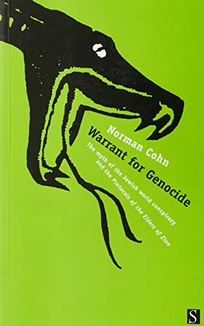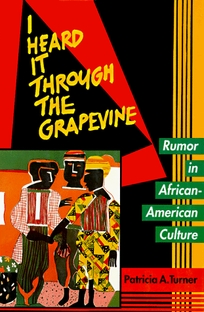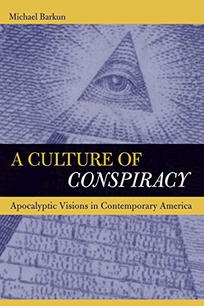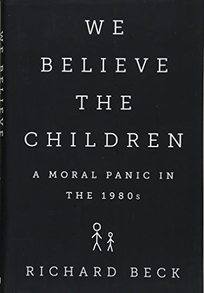10 Brilliant Books to Understand Conspiracy Thinking
In Under the Eye of Power: How Fear of Secret Societies Shapes American Democracy (Viking), historian Colin Dickey argues that “a paranoia of secret, subversive societies, is not just peripheral to the functioning of democracy, but at its very heart.” Dickey chronologically traces the various manifestations of conspiratorial thinking from the pre–Revolutionary War period to the 20th century, examining anti-Catholic, anti-Semitic, anti-Labor, anti-Black, anti- (and pro-) slavery conspiracy theories, among others. Turning to the present day, he examines the rise of QAnon and wild theories about the origins of Covid-19. Characterizing conspiracy theories as “a secularized version of religion,” Dickey argues they must be resisted as part of the struggle for a free and fair democracy. It’s a vivid and gripping recontextualization of a misunderstood aspect of American history.
When Richard Hofstadter first coined the term “the paranoid style of American politics” in 1964, he saw the problem as belonging mostly to the fringe of America: he was writing in the wake of the failed Barry Goldwater presidential campaign—which benefited from the rise of the John Birch Society, a conspiracy-minded fringe group—and he saw Lyndon Johnson’s defeat of Goldwater as proof that a sensible, rational, centrism was sufficient to beat back the paranoid weirdos that occasionally erupted into the American consciousness. What the last few years have taught us, unfortunately, is that conspiratorial thinking runs much deeper and wider through our culture, and it takes more than just wishful thinking to defeat.
There are a lot of books that attempt to understand the lure of conspiracy theories and their effect on our lives. The books below are the ones that I’ve found particularly insightful and have returned to again and again. They do more than just report on where we’re at or recount some historical incident; each offers crucial insight as to the mechanism that drives the conspiratorial mind. As such, I’ve found them to be crucial tools in our arsenal to push back against the paranoia and disinformation that’s gripping our country.
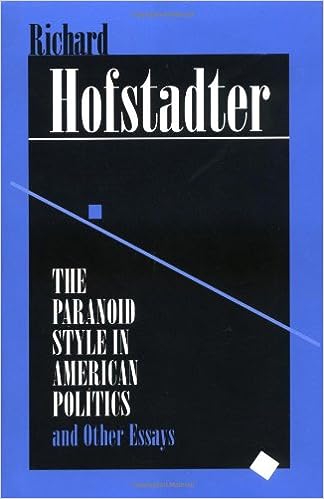
1. The Paranoid Style in American Politics and Other Essays by Richard Hofstadter
Much of Under the Eye of Power is a reaction and a response to Hofstadter’s now-classic essay from 1964, in which he argues (among other things) that America is governed by a sensible, rational middle that keeps the fringe conspiracists on the left and the right at bay. While I don’t agree with Hofstadter’s assessments, I nonetheless think his book remains a crucial attempt to understand how conspiratorial thinking seeps into the American consciousness.
2. A Warrant for Genocide: The Myth of Jewish-World Conspiracy and the Protocols of the Elders of Zion by Norman Cohn
In this short but comprehensive and illuminating study, Cohn (one of my favorite historians) offers a biography of the most notorious book ever written: The Protocols of the Elders of Zion. Cohn not only traces its strange origins as a forgery (a plagiarized adaptation of a French satire, rewritten most likely by the Russian secret police) and its dissemination around the world (spread by powerful figures that included Henry Ford), he also makes sense of the book as a “literary” document—how it’s structured, how it uses rhetorical tricks and tactics to spread its insidious message, and why it has stubbornly endured for over a century.
4. A Culture of Conspiracy: Apocalyptic Visions in Contemporary America by Michael Barkun
Written in 2001 and revised in 2013, Barkun’s analysis still feels fresh despite everything that’s happened since. When Barkun was writing around the turn of the millennium, apocalyptic fervor had gripped both the extremist fringe and the mainstream population; Barkun saw how this yearning for some kind of End Times was sliding into conspiracy theory and paranoia and offered a roadmap for understanding our current paranoid moment.
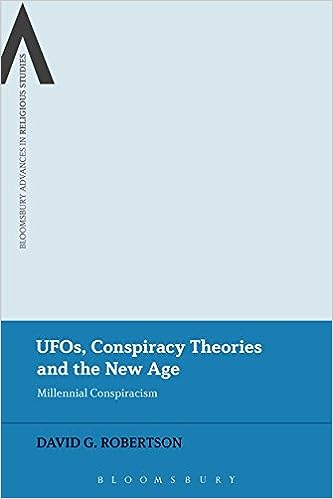
5. UFOs, Conspiracy Theories and the New Age: Millennial Conspiracism by David Robertson
Another scholarly volume that is nonetheless very readable and utterly compelling, this outing from Robertson introduces the term “epistemic capital” to help make sense of conspiracy theorists: there are the “elites,” with all the power and the money, and then there are the “sheeple,” the duped suckers. Conspiracy theorists, Robertson argues, develop a shadow kind of “capital” to confront the elites’ actual power: epistemic capital, based on their “knowledge” of what’s “truly” going on. It’s all nonsense, of course, but it powers industries and keeps the disinformation firehose going, and Robertson does a great job of showing how it works.
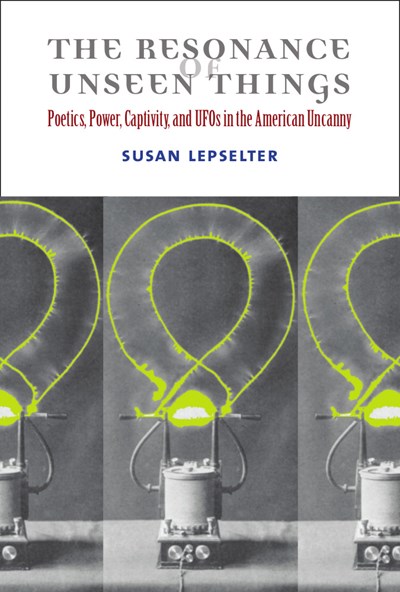
6. The Resonance of Unseen Things: Poetics, Power, Captivity, and UFOs in the American Uncanny by Susan Lepselter
Lepselter blends the genres of academic monograph and memoir in ways that make for a fascinating read. She spends time out in the desert near Area 51, hanging out with believers looking for aliens and trying to understand their deeper motivations, in the process tracing the metaphors and stories that conservative Americans tell themselves to make sense of a changing world. Literary in style and beautifully written, it’s not like any other book you’ve read, and definitely one I’ve returned to again and again.
7. We Believe the Children: A Moral Panic in the 1980s by Richard Beck
Beck’s survey of the Satanic Ritual Abuse panic of the 1980s is as riveting as it is disturbing. How did a country become convinced that Satanists were hiding in every daycare and suburban home, subjecting children to bizarre esoteric blood sacrifices? How were so many parents and childcare workers sentenced to dozens—in some cases, hundreds—of years in prison on the testimony of coerced children without any physical evidence? How did something that seems straight out of Puritan New England in the 17th century take place in an era many of us lived through—and how did it get almost immediately forgotten after it burned out?
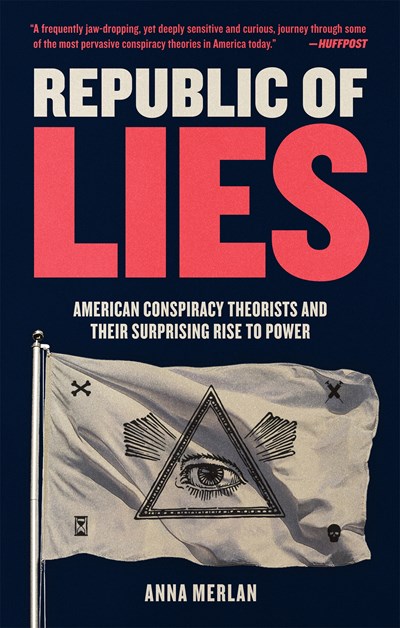
8. Republic of Lies: American Conspiracy Theorists and Their Surprising Rise to Power by Anna Merlan
Merlan has been on the front lines of fringe and extremist culture as a reporter for Vice, chronicling the dark underbelly of American thought—one that has, in recent years, unfortunately come to light. Her writing is always insightful and prescient, and this book from 2019 offers readers deep insight into what’s been happening to this country in the last decade.
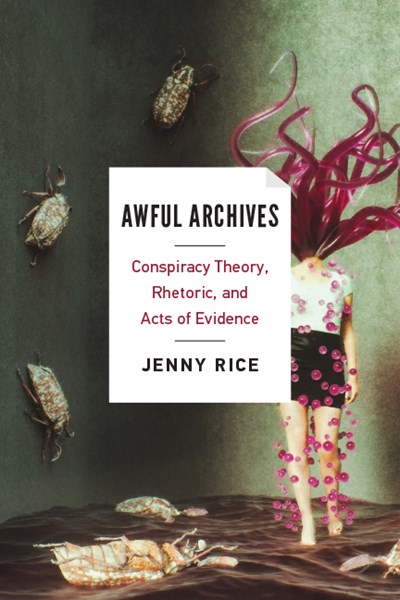
9. Awful Archives: Conspiracy Theory, Rhetoric, and Acts of Evidence by Jenny Rice
Rice’s work is concerned with the question of documentary and archival evidence, what makes a thing “true,” and how that proof moves through the world. The result is a scholarly yet eminently accessible study that strives to make sense of how archival and documentary evidence creates our shared understanding of history.
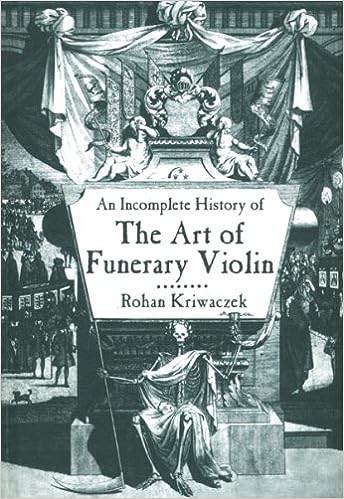
10. An Incomplete History of the Art of the Funerary Violin by Rohan Kriwaczk
Kriwaczk’s book is truly unique: the author claims to tell the history of a lost genre of music—the funerary violin—which was suppressed by the Catholic Church in the early 19th century, all traces of it in history and music having subsequently been destroyed. Written as a historical, archival book of scholarship, it is pure fiction, but as such it is entirely delightful and strange: a Borgesian enterprise of conspiratorial musings and a wondrous read.
This article has been archived for your research. The original version from Publishers Weekly can be found here.
